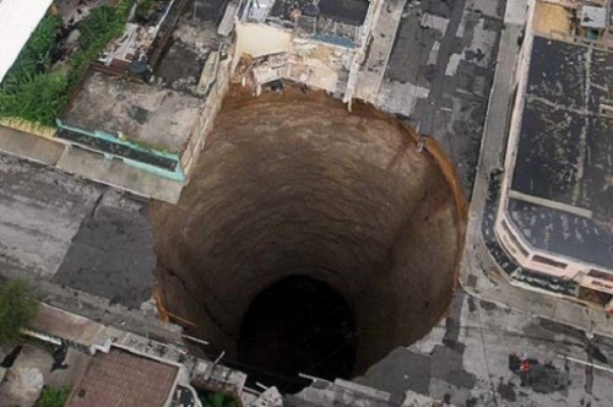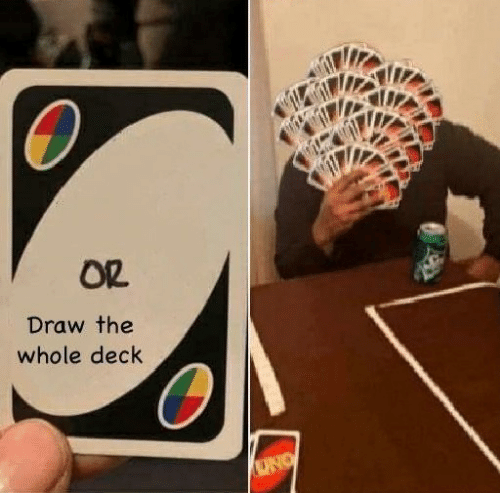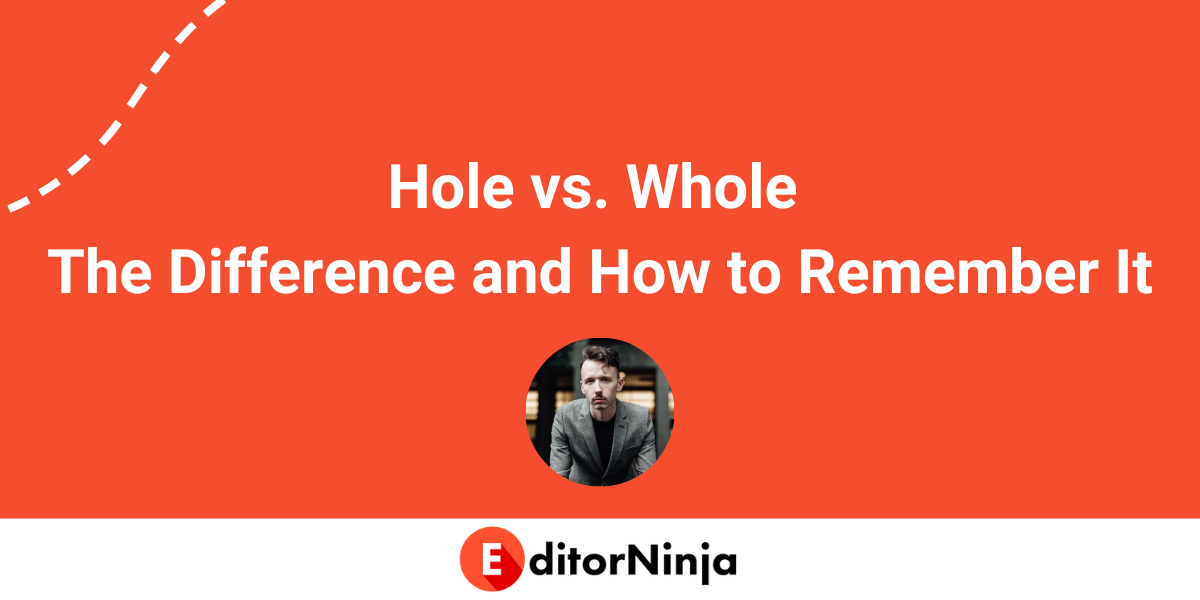Hole and whole are homophones — words that sound the same but have different meanings. Hole is a noun that refers to an empty space, while whole is an adjective that refers to completeness. Here’s a quick guide to their differences and a handy trick to remember them.
Hole
Hole is a noun. A hole is an opening or empty space in a solid object. For example:
- The donut has a hole in the middle.
- A well is a hole in the ground where you get water.
- Your shirt has buttons on one side and button holes on the other.

Whole
Whole is an adjective. It refers to something that is complete or undivided. For example:
- He ate a whole cake by himself.
- With one of their players out, the team didn’t feel whole.
- The whole school attended the assembly.

More on the Word “Hole”
The word hole is related to the word hollow, which has a similar meaning. It comes from an Old English word, hol.
The phrase “hole in the wall” is used to refer to a business, like a pub or restaurant, that is small and unpretentious. A “hell hole” is an unpleasant place. To be “in the hole” means to be in a bad place financially, owing debts, or to be spending more money than bringing in.
We sometimes use the word “hole” to refer to a problem or a sticky situation. If I got myself in trouble, I might say, “now I have to dig myself out of this hole.”
More on the Word “Whole”
Whole is also derived from Old English — it comes from the word hal, which meant in good condition or unhurt. It is related to the words hale and healthy.
Whole can refer to things that contain all their original parts, like whole grain (no part of the grain has been removed), or whole milk (unskimmed).
Whole often means the entire, or every part of, as in, “Her whole apartment smelled like a scented candle.”
In mathematics, the phrase whole numbers refers to numbers that are “entire or whole quantities,” like 1, 2, 3, etc., as opposed to fractions and decimals (¼ or 3.75), which are not “whole.”
How to Remember the Difference between Hole and Whole
Here’s a little mnemonic device for remembering the difference between hole and whole:
As whole means complete, remember that it isn’t whole without the W. And you can imagine the word hole is missing something — the W!
Need Help with Whole, Hole, and More?
EditorNinja is here to help! We’re a team of professional content editors, across line editing, copy editing, and proofreading. All EditorNinja editors are MFA trained and look forward to editing your written content!
Schedule a free editorial assessment today to see how using EditorNinja can save you days of time, buy back hours that you can use to create more content or work on other things, and make on average a 3.5x ROI, or at least $12,000+, on your investment.

